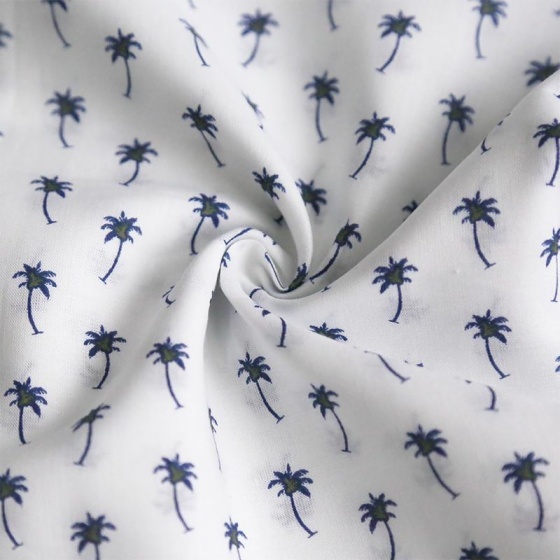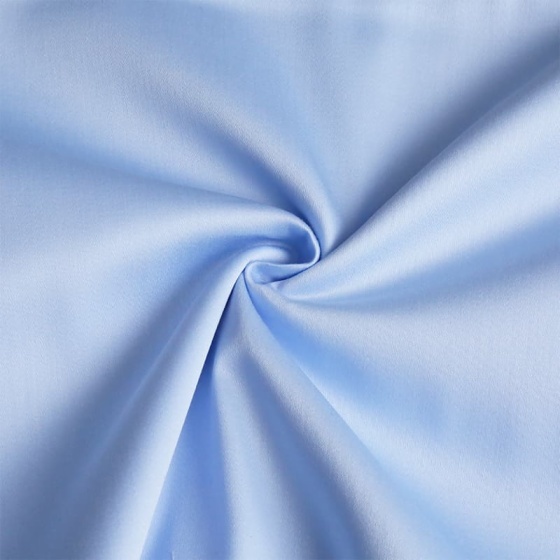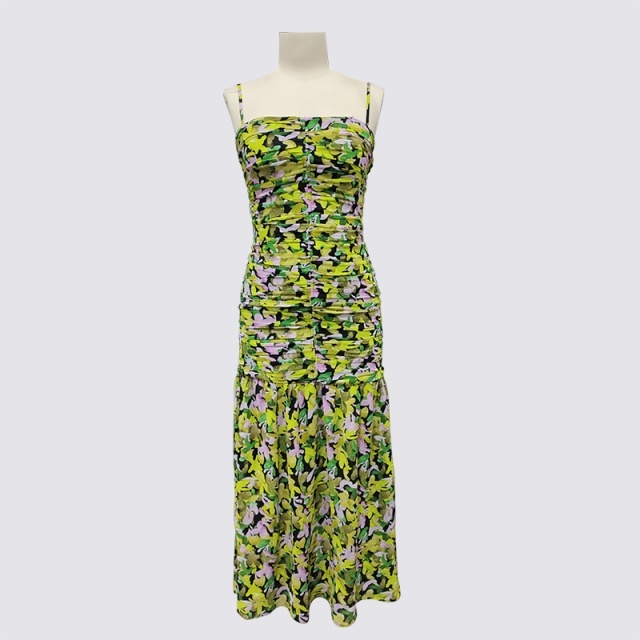Unlocking Creativity: How Digital Printed Fabric Transforms Fashion Design
May 30,2025
Unlocking Creativity: How Digital Printed Fabric Transforms Fashion Design
In an era where fashion continually evolves, the advent of digital printed fabric stands out as a significant game-changer. This technology not only enhances aesthetic appeal but also redefines the creative boundaries for designers. In this comprehensive article, we delve into the multifaceted advantages of digital printing in the textile industry, uncovering how it empowers designers to unleash their creativity like never before.
Table of Contents
- What is Digital Printed Fabric?
- The Evolution of Fabric Printing Technologies
- Advantages of Digital Printing in Fashion Design
- Sustainability and Environmental Impact
- Personalization and Customization Opportunities
- Case Studies of Successful Designs Using Digital Printing
- The Future of Digital Printed Fabric in Fashion
- Frequently Asked Questions
What is Digital Printed Fabric?
Digital printed fabric refers to textiles that are printed using digital inkjet technology. Unlike traditional methods that rely on screens and plates, digital printing applies color directly onto the fabric using specialized printers. This process enables a higher level of detail, vibrant colors, and the ability to create complex patterns that were previously unachievable.
The Mechanics of Digital Printing
The digital printing process begins with a digital design file. A printer then translates this design into a stunning physical textile. Various ink formulations, including reactive, pigment, and sublimation inks, are used depending on the fabric type. The result is a high-quality print that retains the fabric’s natural texture and drape while offering an unparalleled level of detail and color vibrancy.
The Evolution of Fabric Printing Technologies
The evolution of fabric printing has been significant over the years. From the early block printing techniques to today’s sophisticated digital methods, each advancement has pushed the boundaries of creativity in fashion design.
Traditional vs. Digital Printing: A Comparison
While traditional printing methods, such as screen printing, have been the backbone of the textile industry for decades, they come with limitations such as setup costs, minimum order quantities, and restricted color palettes. In contrast, digital printing eliminates these barriers, allowing for rapid prototyping and small-batch production without sacrificing quality.
Advantages of Digital Printing in Fashion Design
The benefits of digital printed fabric extend far beyond just aesthetics; they revolutionize the entire design process.
1. Enhanced Creativity and Flexibility
Digital printing allows designers to experiment with intricate designs and bold color combinations without worrying about technical constraints. This freedom encourages innovation, enabling designers to realize their visions with ease.
2. Rapid Production and Quick Turnaround Times
In today’s fast-paced fashion industry, speed is of the essence. Digital printing significantly reduces production times, allowing brands to bring their designs to market faster than ever before. This agility is crucial for keeping up with evolving consumer trends.
3. Cost-Effective for Small Runs
For emerging designers and small businesses, digital printing offers a cost-effective solution for producing unique pieces without the need for large minimum orders. This accessibility fosters creativity and individuality in fashion.
Sustainability and Environmental Impact
As sustainability becomes a growing concern in the fashion industry, digital printed fabric presents an eco-friendly alternative to traditional methods. The reduced use of water and chemicals in digital printing processes minimizes environmental impact, making it an attractive choice for environmentally conscious brands.
Eco-Friendly Materials and Inks
Many digital printing companies are embracing sustainable materials and inks, further reducing their carbon footprint. Organic fabrics and water-based inks are increasingly common, offering an environmentally friendly option without compromising on quality.
Personalization and Customization Opportunities
Consumers today crave personalized experiences, and digital printed fabric allows designers to cater to this demand effectively. With digital printing, custom designs can be created for individual clients, adding a unique touch to each piece.
Direct-to-Consumer Models
The rise of e-commerce has enabled brands to adopt direct-to-consumer models, where customers can customize prints and patterns according to their preferences. This innovative approach not only enhances customer satisfaction but also encourages repeat business.
Case Studies of Successful Designs Using Digital Printing
Several fashion brands have successfully utilized digital printed fabric to create standout pieces that exemplify creativity and innovation.
1. Brand Spotlight: A Successful Luxury Fashion House
A renowned luxury fashion house recently launched a collection featuring intricate floral designs created using digital printing technology. The result was a stunning line of dresses that showcased unparalleled detail and vibrancy, garnering critical acclaim.
2. Emerging Designer Success Story
An emerging designer used digital printed fabric to craft a limited-edition collection inspired by urban landscapes. By leveraging the capabilities of digital printing, the designer produced unique pieces that resonated with a modern audience, resulting in a successful launch.
The Future of Digital Printed Fabric in Fashion
The future of digital printed fabric in fashion looks promising. As technology continues to advance, we can expect even more innovative applications of digital printing. From augmented reality in design experiences to the integration of smart textiles, the possibilities are endless.
Adapting to Industry Trends
Fashion designers and brands must stay ahead of industry trends, and digital printing offers the flexibility needed to adapt quickly. Whether it’s seasonal collections or on-demand production, digital printing facilitates rapid responsiveness to changing consumer preferences.
Frequently Asked Questions
1. What types of fabrics can be printed digitally?
Almost any fabric can be printed digitally, including cotton, polyester, silk, and blends. The choice of fabric often depends on the desired finish and application.
2. How does digital printing compare to screen printing in terms of cost?
Digital printing is typically more cost-effective for small runs and one-off designs, while screen printing becomes more economical at larger volumes due to setup costs.
3. Is digital printing environmentally friendly?
Yes, digital printing can be more environmentally friendly than traditional methods, as it often uses less water and fewer chemicals. Many companies are also investing in sustainable inks and fabrics.
4. Can I create my own designs for digital printing?
Absolutely! Many digital printing services allow customers to upload their own designs for custom fabric printing, making it easy to create unique pieces.
5. What are the limitations of digital printing?
While digital printing offers numerous advantages, it may not be suitable for very large production runs or specific specialty inks and finishes that screen printing can provide.
Conclusion
The transformative power of digital printed fabric in fashion design cannot be overstated. This innovative technology not only sparks creativity but also paves the way for sustainability and personalization in the textile industry. As designers continue to explore the limitless possibilities of digital printing, we anticipate a future where fashion becomes even more vibrant, unique, and environmentally conscious. Embracing digital printed fabric is not just a trend; it is a movement towards a more innovative and sustainable future in fashion design.
More Events
Discover the Boundless Versatility of Printed Cloth Fabric for Your Next Creative Project
Discover the Boundless Versatility of Printed Cloth Fabric for Your Next Creative Project Table of Contents Introduction to Printed Cloth Fabric A Brief History of Printed Cloth Fabric Types of Printed Fabric Available Diverse Uses of Printed Cloth Fabric How to Choose the Right Printed Fabric for Your Project Tips for Working Effectively with Printed Fabric Latest Tre
Jun 07,2025
Exploring the World of Men’s Shirt Fabrics: A Comprehensive Guide
When it comes to choosing the perfect shirt for any occasion, understanding the different types of men’s shirt fabric is crucial. The fabric not only affects the shirt's appearance but also its comfort, breathability, and durability. Here, we delve into some of the most popular fabrics used in men’s shirts and what makes each unique. **Cotton** is perhaps the most common fabric for men’s shirts, v
Jun 06,2025
Explore the Versatility of Linen Printed Fabric in Home Decor
Explore the Versatility of Linen Printed Fabric in Home Decor Introduction to Linen Printed Fabric Linen printed fabric is a remarkable textile that has carved a niche in the world of home decor. Known for its **breathable** and **durable** nature, linen is favored by designers and homeowners alike. As we delve into the many ways this fabric can be integrated into home decor, you'll discover how i
Jun 05,2025
Do Not Heasite To Contact W&S, Your Comprehensive Solution Provider Now!
We like produce phone cases but we more like to see you earn lots of money by working with us.
Quick Link
Garment
Copyright © Nantong Wang and sheng Textile Co., Ltd. All Right Reserved.

Whatsapp: 008613861954999
Looking forward to your call
Tel: 0086-513-80609999
Looking forward to your call
Email: 1219341304@qq.com
Looking forward to your letter





